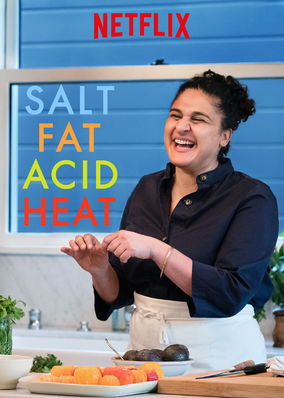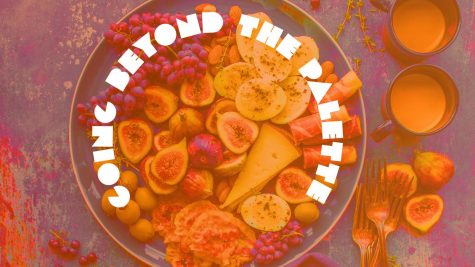Netflix’s food-focused section is growing, with an audience demanding entertainment that makes your mouth water. While some new shows are similar to traditional cooking shows, several emerge with an undeniable fervor as enticing as their most scrumptious morsels and delicacies.
Noteworthy are two documentary style, culinary-master-hosted Netflix originals. Perhaps taking cues from the late, great Anthony Bourdain, both offer the opportunity to explore the wider world. In “Salt, Fat, Acid, Heat,” the infectiously adventurous Samin Nosrat gives viewers a closer look at cooking while in “Ugly Delicious,” renowned chef David Chang focuses on cuisine.
In each episode, the programs take us back and forth across the globe in non-linear narratives.
Salt, Fat, Acid, Heat
Based on the educational cookbook of the same title, the four chapters of “Salt, Fat, Acid, Heat” offer episodic adventures. Each takes on one of the four elements which Nosrat insists determine how your food tastes. If one can master and understand these components, they have all that they need to create great food.
Traveling to Italy, Japan, the Yucatán and to her home in my own beloved neighborhood of Berkeley, California, Nosrat enlists the help and counsel of experts and friends to learn about these fundamental parts of flavor.
First adventuring into the land of fat in Italy, she bends many of the rules set by modern Instagram and fitness-focused foodies who seek to purge dishes of this ingredient. She tastes olive oils like fine wines and relishes in the cuts of meat that many are accustomed to avoiding. Nosrat’s relationship with food and those who make it is a refreshing reminder to how food can feed your soul.
In the episode “Acid” (an examination of balance—one of those aforementioned elements) Nosrat and a guest eagerly seek the wisdom of tortilla-making, masa-manipulating women in the Yucatán. She even takes the opportunity to offer an explanation of the science underlying food acidity.
With this show, home cooks and food-obsessed citizens alike receive a trove of information about food from both a scientific and emotional perspective. Like the book, “Salt, Fat, Acid, Heat” offers watchers and readers a unique view of the roots of key food ingredients—not to mention a new way of looking at flavor in general.
Ugly Delicious
After years of playing the guest, David Chang’s voice and attitude are unmistakable in his hosting premiere. No-nonsense and no-niceties, Chang makes his opinions known and his viewpoint clear. Enlisting friends from diverse backgrounds across food culture, health, and even comedy, the creator of Momofuku navigates the cultural implications of various cuisines, cooking techniques, and dishes.
Chang’s style does not shy away from subjectivity. For example, the Michelin-starred chef constantly likens every dish to a Korean counterpart similar to the food he was served and accustomed to as a child. He is unapologetic about the influence of his lived experiences, comparing ravioli to dimsum and refusing to believe that any dish in the world comes close to Peking duck.
Chang devours controversy. Unassuming concepts are revealed as roots of racist stereotypes. In an episode about fried rice, Chang tackles the racism implicitly stemming from MSG, a demon associated with Chinese food yet present in almost all American junk foods. Recurring for good reason is the message that immigrants have contributed cuisines that this country would be worse-off without, even while many newcomers are seen as dirty or have gained negative associations.
Chang asks what it means when a white man becomes inspired by the southern fried chicken traditionally cooked by black women and, originally, freed slaves because it was the only meat they were allowed to cook.
There is still an expectation that the highest level of cuisine is taught only by French inspiration. Both “Salt, Fat, Acid, Heat” and “Ugly Delicious” push against that wave and, through international journeys, bring prominence to cuisines less well-known to western audiences.
Emma Waldman can be reached at [email protected].




















